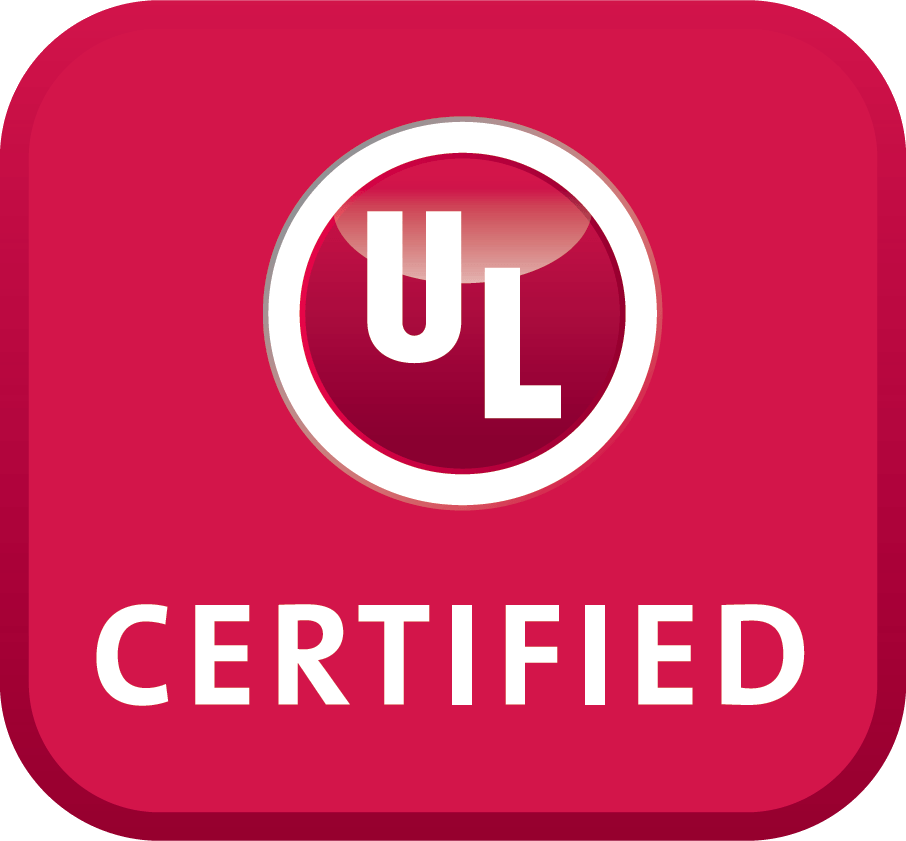UL Certification: Understanding Its Importance And Process
UL Certification is a crucial aspect of product safety and quality assurance that businesses cannot afford to overlook. In a world where consumer safety is paramount, UL (Underwriters Laboratories) provides certification that signifies a product has been tested and meets specific safety standards. This article delves deep into what UL Certification entails, its significance for businesses and consumers alike, and the steps involved in obtaining this certification.
With the growing emphasis on safety and quality, understanding UL Certification becomes essential, especially for manufacturers and retailers. This comprehensive guide will take you through the intricacies of UL Certification, the benefits it offers, and how it can influence purchasing decisions and marketability.
Whether you are a business owner looking to enhance your product's credibility or a consumer wanting to make informed choices, this article aims to provide you with valuable insights into UL Certification and its broader implications.
Table of Contents
- What is UL Certification?
- Importance of UL Certification
- How UL Certification Works
- Types of UL Certifications
- The UL Certification Process
- Benefits of UL Certification
- Challenges in Obtaining UL Certification
- Case Studies: Companies with UL Certification
What is UL Certification?
UL Certification refers to the process by which Underwriters Laboratories, an independent safety science company, tests and certifies products for safety and performance. Established in 1894, UL has become a trusted name in product safety, providing certification services to a wide array of industries.
The certification process involves rigorous testing of products to ensure they meet established safety standards. Once a product receives UL Certification, it can bear the UL mark, indicating to consumers that it has been tested and deemed safe for use.
Key Features of UL Certification
- Independent testing and validation
- Compliance with national and international safety standards
- Regular audits and re-evaluations to maintain certification status
Importance of UL Certification
For manufacturers, UL Certification serves as a critical differentiator in a crowded marketplace. It builds trust with consumers by ensuring that products are safe and reliable. Additionally, many retailers require UL Certification before agreeing to stock a product, making it essential for market access.
From a consumer perspective, UL Certification provides peace of mind. Knowing that a product has undergone rigorous testing helps consumers make informed purchasing decisions, ultimately fostering trust in brands.
How UL Certification Works
The UL certification process begins with product evaluation, during which the product undergoes testing against specific safety standards. The testing may include assessments of electrical safety, fire hazards, and other relevant factors.
Once the product passes the necessary tests, UL issues a certification report and allows the manufacturer to use the UL mark on their product. However, obtaining and maintaining UL Certification requires ongoing compliance with UL's standards, including regular inspections and audits.
Types of UL Certifications
UL offers various types of certifications depending on the product category. Here are some of the main types:
- UL Listed: Indicates a product has been tested and meets specific safety standards.
- UL Recognized: For components that are part of a larger system, indicating they are safe for their intended use.
- UL Classified: Products that meet specific criteria but do not fit the traditional testing standards.
The UL Certification Process
The UL Certification process involves several key steps:
- Application Submission: The manufacturer submits an application along with product samples for testing.
- Product Testing: UL conducts rigorous tests to evaluate the product’s safety and compliance with standards.
- Evaluation: A comprehensive evaluation of the test results is performed.
- Certification Decision: If the product meets all requirements, UL issues a certification.
- Ongoing Compliance: Regular audits and inspections are conducted to ensure continued compliance.
Benefits of UL Certification
The benefits of obtaining UL Certification are manifold:
- Enhanced Product Credibility: UL Certification serves as a mark of quality and safety, boosting consumer confidence.
- Market Access: Many retailers and distributors require UL Certification, opening doors to new business opportunities.
- Reduced Liability: Certified products are less likely to cause safety issues, reducing the risk of legal liabilities.
- Competitive Advantage: Products with UL Certification stand out in the marketplace, giving businesses a significant edge.
Challenges in Obtaining UL Certification
While UL Certification offers numerous benefits, the process can be challenging:
- Complex Standards: Understanding and complying with the various safety standards can be daunting.
- Time-Consuming Process: The testing and evaluation process can take considerable time, delaying product launches.
- Costs: The expenses involved in the certification process can be significant for some manufacturers.
Case Studies: Companies with UL Certification
Many well-known companies prioritize UL Certification, leveraging it to enhance their brand image and marketability. Here are a few examples:
- Apple: All Apple products are UL certified, ensuring compliance with safety standards and enhancing customer trust.
- GE Appliances: GE emphasizes safety and reliability through UL certification on their appliances.
- Philips Lighting: Philips uses UL Certification to reinforce its commitment to product safety in the lighting industry.
Conclusion
In conclusion, UL Certification is a pivotal element of product safety and quality assurance that benefits both manufacturers and consumers. By understanding the importance, process, and advantages of UL Certification, businesses can enhance their credibility and market reach while consumers can make informed choices about the products they purchase.
We invite you to share your thoughts on UL Certification. Have you had experiences with UL certified products? Please leave a comment below, and feel free to share this article with others who may find it useful!
Closing Thoughts
Thank you for reading! We hope this article has provided you with valuable insights into UL Certification. Be sure to check back for more informative articles that can help you navigate the complexities of product safety and quality assurance.
Gabrielle Hanson: A Rising Star In The Entertainment Industry
Pearson Assessments: A Comprehensive Guide To Understanding And Utilizing Assessment Tools
Understanding Air Buses: A Comprehensive Guide


